England football boss Glenn plays captain's role at FA
- Published

England are seeking qualification for the 2018 World Cup in Russia
As England take on Scotland at Wembley tonight the FA's chief executive Martin Glenn is looking beyond the result of one World Cup qualifier.
Mr Glenn, who spent decades in the food industry before taking over at the FA some 18 months ago, has a long list of goals, with success for the men's elite football team just one of them.
Transforming the FA's finances, promoting more diversity within its structures, and continuing to support the grassroots game - including women's football - are also high on his agenda.
"The FA is a not-for-profit organisation - that is intentional... not accidental," he jokes.
"We play an interesting role in the game, we sit in the middle of two very successful leagues, the Premier League and English Football League.
"The FA's job is to sit between highly successful commercial enterprises, and try and harness the amount of money in the game to best effect."
Fish fingers
Mr Glenn's reign at the head of English football has been something of a roller coaster ride so far, with the shock defeat to underdogs Iceland at Euro 2016, and then manager Sam Allardyce resigning after a Daily Telegraph investigation.
Prior to taking up his role in March last year, Mr Glenn worked as chief executive for United Biscuits, home to the well-known McVities's and Jacobs brands.
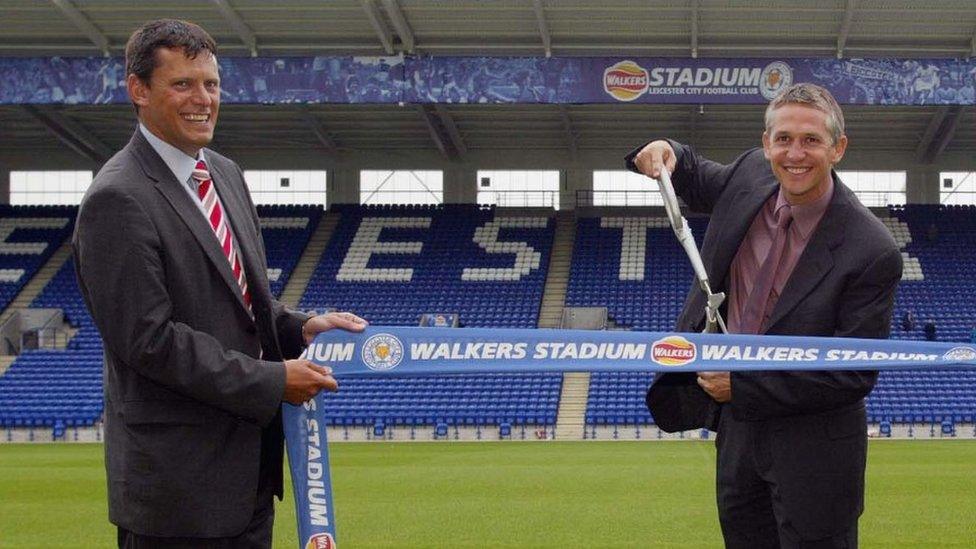
Mr Glenn, during his Walkers days, with Gary Lineker
Before that, he first attracted attention in the business world in the mid-1990s when he greatly increased the market share of Walkers Snack Foods, and signed up former England star Gary Lineker to be the face of the eponymous crisp brand.
Mr Glenn ran the business until 2006, when he left to join another food brand, Birdseye, where he put the iconic Captain Birdseye into dry dock and replaced him with a polar bear called Clarence.
Mr Glenn has being using that commercial experience - and seeming ruthlessness - to reinvigorate the FA's finances, for example by cutting admin jobs and diverting the money into grassroots football development.

Mr Glenn has renewed the domestic TV deal for the FA Cup
"I was brought in to relocate cash from the back office to the playing side. We have made a lot of progress over the past year on the economics of the FA," he says.
One indicator of progress made is his declaration that the FA's revenues are forecast to grow by around a third, to £420m, in 2018.
"I am also happy we have extended our domestic TV rights deal for the FA Cup with BT and the BBC," he says.
Wembley pays its way
In addition, a new international TV rights deal for the FA Cup will be worth more than £800m in total across six years - a development Mr Glenn says presents him with the welcome problem of deciding, with the FA's board, of how to spend the money.
Meanwhile, the financial ball-and-chain that had been Wembley Stadium is being turned into a useful asset, bringing in revenues not only through FA-sanctioned matches, but also via music concerts, NFL American football games, and... Tottenham Hotspur.
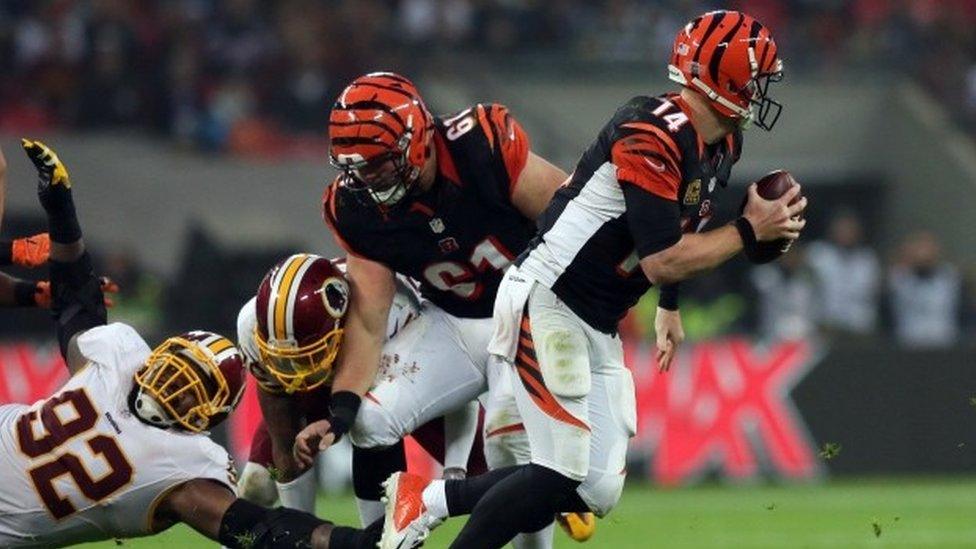
Wembley Stadium now has a number of healthy income streams
While they build their new stadium, Spurs are playing this season's Champions League games at Wembley, and there is also an option to play Premier League and cup games at the 90,000-capacity national arena during the 2017-18 season.
However, he points out that the FA is still carrying £200m debt from the building of Wembley Stadium.
"We would like to pay that down - to be debt free," says Mr Glenn, speaking at a Sport Industry Group business gathering in London.
"But the Wembley Stadium proposition is profitable, it is not a stone in our shoe any more."
Gender diversity
Another issue in Mr Glenn's in-tray is diversity at the FA. The government has recently announced new governance standards for sport, that come into effect next April.
Organisations seeking funding from Sport England, regardless of size and sector, including national governing bodies, have been set a target of at least 30% gender diversity on their boards.
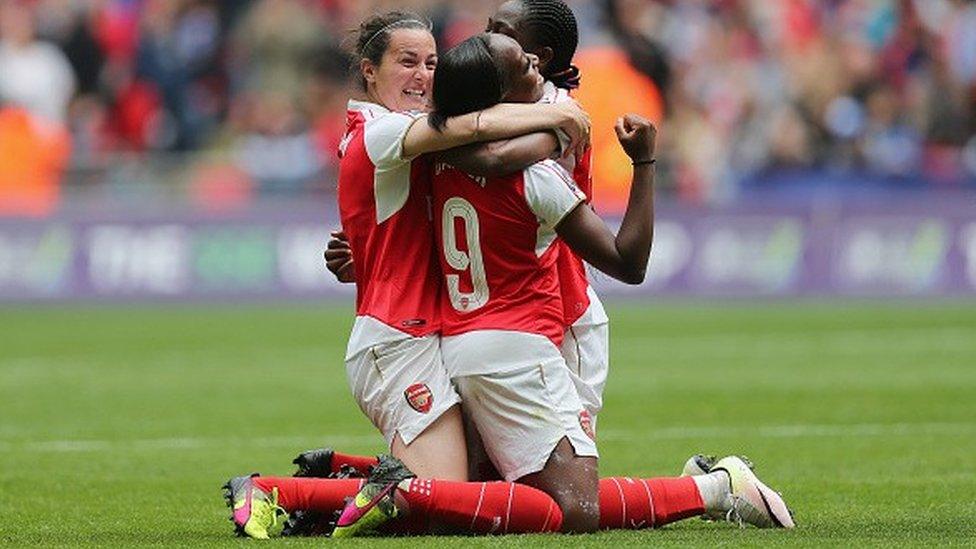
The FA has to become more diverse or risk funding reductions
Failure to comply could mean government funds for the FA being withheld, but Mr Glenn says he does not need the fear of sanctions in order to modernise the game's governance demographic.
"From my experience in business, I can see the whole drive for wider recognition on boards is not about box ticking," he says. "There is a good business case for it."
He believes that organisations whose management structures reflect the people they represent "make better business decisions".
'In touch'
Mr Glenn says among the FA workforce there will be no problem in achieving the desired representations, but he admits that more will have to be done to address the make-up of the FA board.
At present Heather Rabatts is the only woman and the only representative from an ethnic minority on the board.
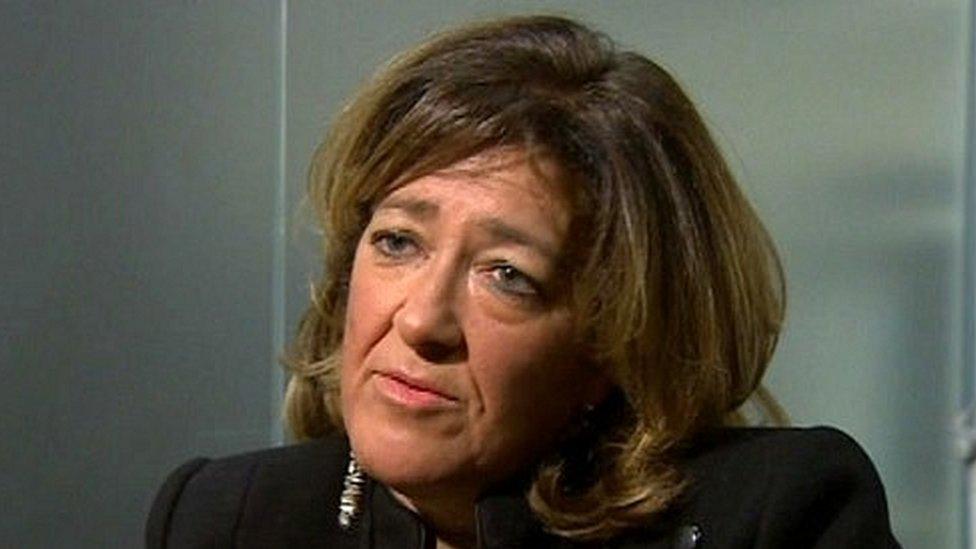
Heather Rabbatts is a lone figure on the FA's board
"What we can control is fine," he says, but points out that five members of the board are appointed by other bodies, namely the county FAs (representing the national game), the Premier League, and the Football League.
He says his job is to "persuade the other constituents of the board" that more diversity is desirable.
"Business is run in the 21st Century in a certain way, and we should reflect how that is."
'Broad church'
Mr Glenn is a former Leicester City FC non-executive director, and sat on the club's board from 2002 to 2006.
But he is also an FA qualified grassroots coach, holding a Level One coaching badge, and is aware that as local councils provide fewer facilities for grassroots football it behoves the football body to step in.
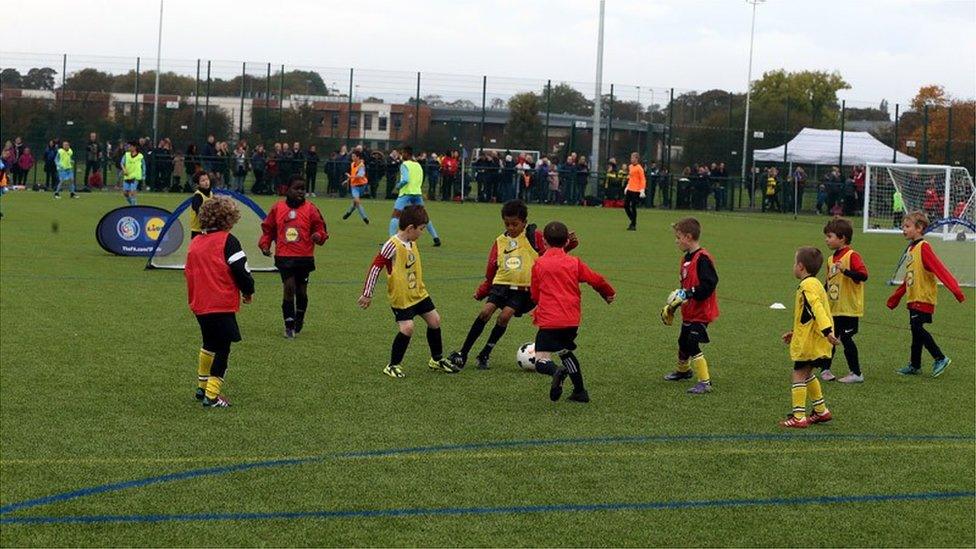
The FA is looking to open a series of Parklife hubs across England
Last month in Sheffield he was at the opening of the first Parklife hub - part of a plan to roll out 150 football centres across 30 cities by 2020 in a drive to upgrade grassroots football facilities across the country.
That is another reason why he says money is important for the FA, to help with the grassroots investment in pitches and coaches, schemes which do not always get the same media attention as the England men's team playing tonight.
"We are a very broad church - we run women's soccer, are in charge of elite international teams, in charge of discipline, and responsible for participation and development of the sport," says Mr Glenn.